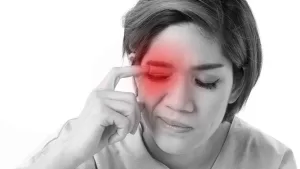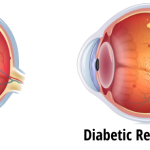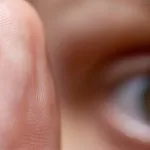
Recognizing and Treating Common Eye Irritants
Introduction
Our eyes are exposed to various irritants on a daily basis, ranging from environmental factors to lifestyle choices. The effects of these irritants can range from mild discomfort to severe damage, depending on the duration and intensity of exposure. Recognizing and addressing these irritants promptly is essential to prevent long-term consequences. So, let’s dive into the details and equip ourselves with the knowledge needed to recognize and treat common eye irritants effectively.
1. Environmental Irritants: Pollen, Dust, and Smoke
Our eyes often come into contact with environmental irritants that can cause redness, itching, and watering. Pollen, dust, and smoke are some of the most common culprits. If you find yourself experiencing these symptoms after spending time outdoors or in a dusty environment, it’s likely that these irritants are to blame. Avoiding exposure to these irritants whenever possible is the first step in managing their effects on your eyes.
2. Chemical Irritants: Household Cleaners and Cosmetics
Many household cleaners and cosmetics contain chemicals that can irritate the eyes. The harsh ingredients in these products can cause stinging, burning, and redness. To prevent eye irritation, it’s crucial to use protective eyewear when handling cleaning chemicals and to be mindful of the products you apply near your eyes. Opt for gentle, hypoallergenic cosmetics and ensure proper removal before going to bed.
3. Allergens: Pet Dander, Mold, and Dust Mites
Allergens such as pet dander, mold, and dust mites can trigger eye irritation in susceptible individuals. If you notice your eyes becoming itchy, watery, or swollen in certain environments or after contact with animals, you may be dealing with allergens. Minimizing exposure to these triggers, keeping your living space clean, and using air purifiers can help alleviate the symptoms.
4. Digital Eye Strain: Prolonged Screen Time
In today’s digital age, many of us spend hours in front of screens, whether it’s for work or leisure. Prolonged screen time can lead to digital eye strain, causing symptoms such as dryness, fatigue, and blurred vision. To combat this, remember to take regular breaks, blink consciously to moisten your eyes, and adjust your screen’s brightness and position to reduce strain.
5. Foreign Bodies: Dust, Debris, and Chemical Splashes
Accidents happen, and foreign bodies can inadvertently find their way into our eyes. Dust, debris, or chemical splashes can cause immediate irritation and discomfort. If this occurs, do not rub your eyes, as it can exacerbate the problem. Instead, flush your eyes gently with clean water or saline solution and seek immediate medical attention if the symptoms persist.
Treating Common Eye Irritants: What You Need to Know
Now that we have familiarized ourselves with the various eye irritants, let’s delve into the treatments and remedies available to alleviate their effects.
1. Artificial Tears: Relieving Dryness and Discomfort
Artificial tears are over-the-counter eye drops designed to mimic the natural tears produced by our eyes. They provide lubrication and moisture, alleviating dryness and discomfort caused by environmental irritants or digital eye strain. Using artificial tears as directed can offer temporary relief and improve eye comfort.
2. Cold Compresses: Reducing Inflammation and Soothing Irritation
For irritated and swollen eyes, cold compresses can be a simple yet effective remedy. Applying a cold compress to the affected eye can help reduce inflammation and soothe the irritation. Ensure the compress is clean and wrapped in a soft cloth or towel to prevent direct contact with the skin.
3. Prescription Medications: Targeting Specific Eye Conditions
In cases of severe or persistent eye irritations, prescription medications may be necessary. These medications can range from anti-allergy eye drops to antibiotics or corticosteroids, depending on the underlying cause. It is important to consult an eye care professional for a proper diagnosis and appropriate treatment plan.
4. Avoidance and Prevention: Shielding Your Eyes
Prevention is always better than cure. To protect your eyes from irritants, consider the following:
- Wear protective eyewear, such as safety goggles or sunglasses, when engaging in activities that pose a risk of eye injury or exposure to irritants.
- Practice good hygiene by washing your hands before touching your eyes, especially if you have been in contact with potential irritants.
- Keep your living environment clean and dust-free to minimize exposure to allergens and environmental irritants.
- Take regular breaks from prolonged screen time to give your eyes a chance to rest and recover.
FAQs About Recognizing and Treating Common Eye Irritants
Q1: What are the common symptoms of eye irritation?
A1: Common symptoms of eye irritation include redness, itching, watering, burning, dryness, blurred vision, and sensitivity to light.
Q2: Can eye irritants cause long-term damage?
A2: Prolonged exposure to certain eye irritants can lead to long-term damage, especially if left untreated. Seeking prompt medical attention is essential to prevent complications.
Q3: Are there any natural remedies for eye irritations?
A3: While natural remedies may offer temporary relief, it is important to consult an eye care professional for proper diagnosis and treatment. They can guide you on the most suitable approach based on the specific irritant and severity of symptoms.
Q4: Can wearing contact lenses contribute to eye irritations?
A4: Improper use or maintenance of contact lenses can increase the risk of eye irritations. It is crucial to follow the recommended hygiene practices and consult your eye care provider if you experience persistent discomfort.
Q5: When should I seek medical attention for eye irritations?
A5: If your symptoms worsen, persist despite home remedies, or if you have a foreign body lodged in your eye, seek immediate medical attention. Additionally, if you experience sudden changes in vision, severe pain, or eye trauma, do not delay seeking professional help.
Q6: How often should I have an eye examination?
A6: It is recommended to have a comprehensive eye examination at least once every two years, or as advised by your eye care professional. Regular check-ups can help detect and address any underlying issues early on.





